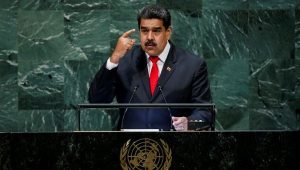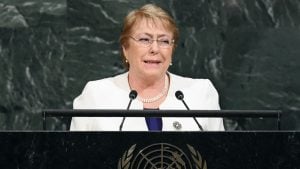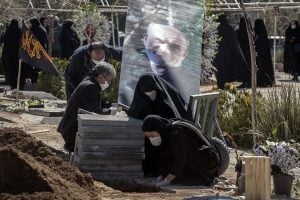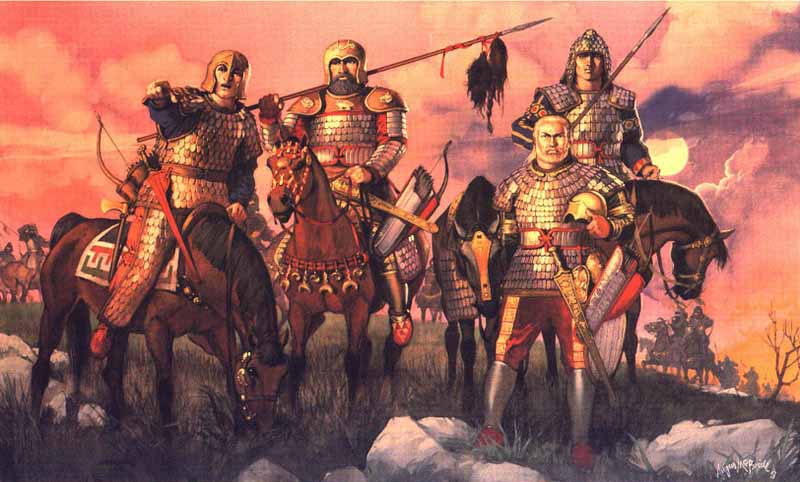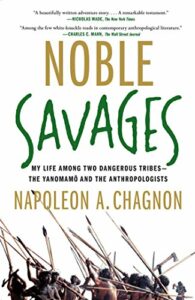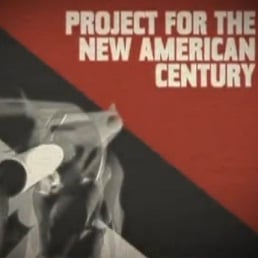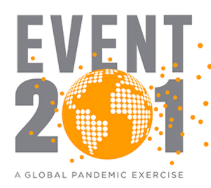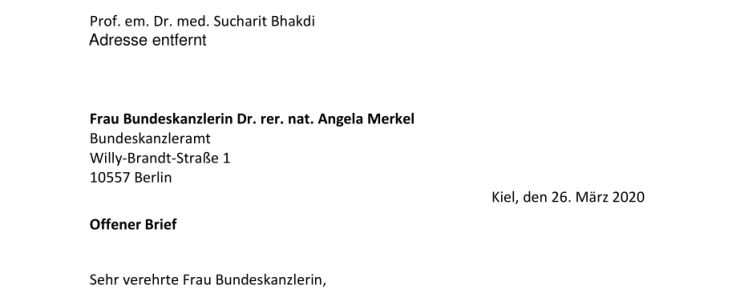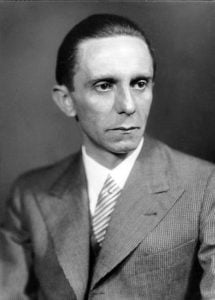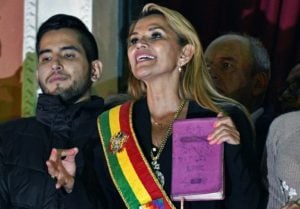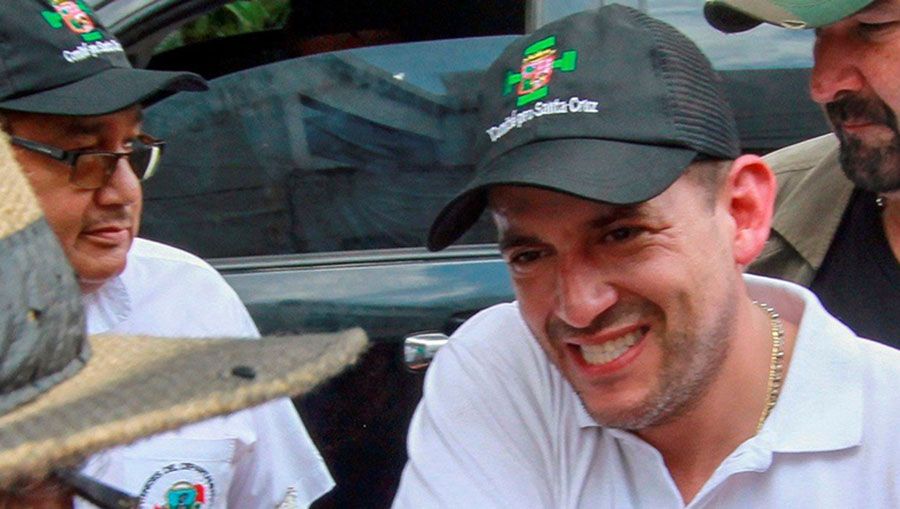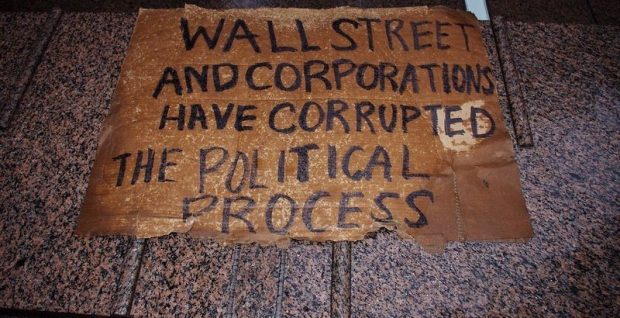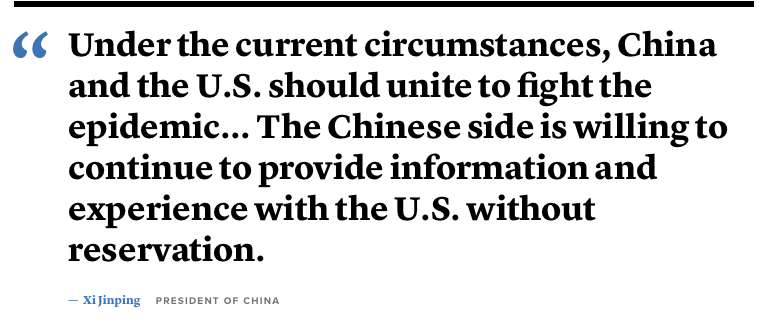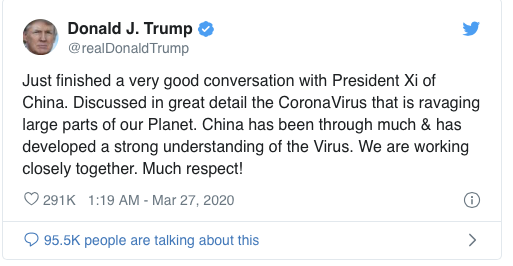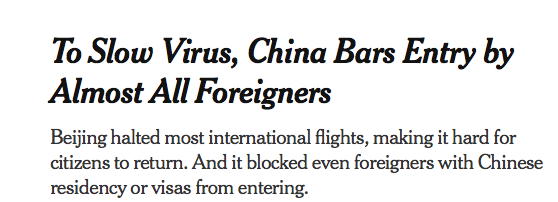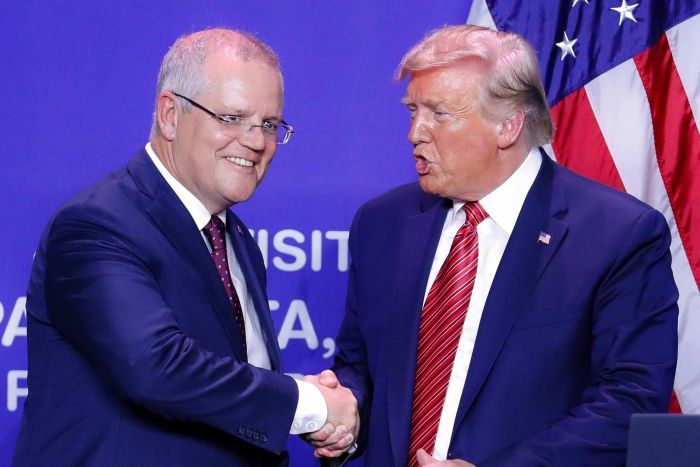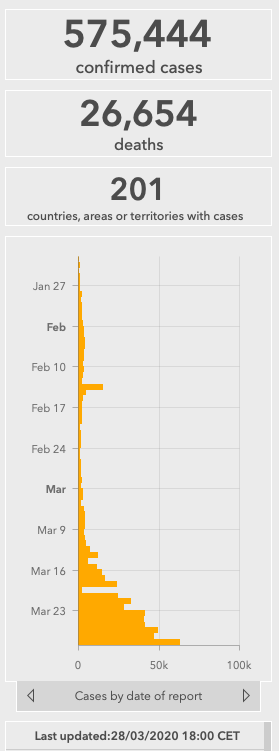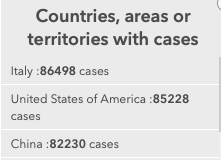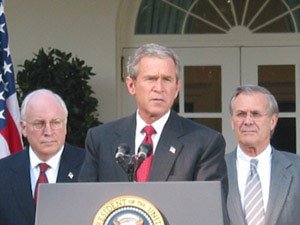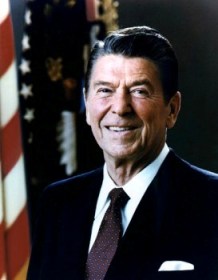South Korea has accomplished a remarkable success in its fight against fearful virus COVID-19 and it is now the object of global curiosity, envy and even admiration.
More than 100 countries faced with rapid waves of virus attack are seeking for Korea’s help and cooperation. Even the mighty president of the U.S. Donald Trump has phoned on March 24 asking President Moon Jae-in‘s help.
South Korea’s president gladly agreed to send medical equipments needed for the fight against the virus in the country of Uncle Sam.
This paper has four sections. In the first section, I examine the nature of the Korean model’s success, while, in the second section, I discuss the principal factors responsible for its success. In the third section, I try to see if there is any basic philosophy in the model. Finally, in the fourth section, I am asking myself if we have learned anything from the crisis.
How Successful?
The results of the anti-virus war can be measured in terms of tracking, the number of tests, the ratio of healing, the number of infected and the rate of mortality.
One of the most difficult parts of the whole process of war against the virus is the tracking. Once one finds the infected person through the test, one has to find all the persons who had first round contact with the original person.
There are, let us say 10 persons. Now, some of these 10 persons may have had the contact with some other people. Here, we have the second round contact and the chain of contact goes on and the virus spreads further.
Korea has done a superb job of tracking owing to the use of cell phones and the collaboration of the general public. This process may involve human right issues, but the government requires the target person’s consent. Furthermore, the government guarantees the confidentiality of personal information.
Korea has so far conducted 330,000 tests, 15,000 per day. Through these tests, as of March 26, about 9,000 have been identified as being infected. Of this number, about 50%, that is, 4,500 persons have been cured.
Of 9,000 infected, 158 lost lives as of March 26 yielding the mortality rate of 1.8%. It is rather low compared to other countries’ mortality rates. But, it is more than possible that Korea’s mortality could increase.
These impressive results were possible because of the Korea’s ability to rapidly stabilize the virus propagation.
On February 19, the daily number of the infected was 39 and it rose rapidly to 610 on March 2nd to fall to 47 on March 26.
So, 12 days were needed to reach the peak of the infection curve and 24 days to hit the near bottom of the curve.
In short, Korea was able to stabilize the virus outbreak in 36 days.
However, now, Korea has to deal with the infected persons coming from the U.S. and other foreign countries.
There is another problem. Many protestant churches are holding Sunday services despite the government’s warning; this increases the danger of community transmission of the virus.
The amazing thing is that Korea has done it without a general lockdown of the society. Only the Taegu City area had partial lockdown for a few weeks. Even here, the government did not order the lockdown; it was decided by the citizens themselves.
The rest of the country was allowed to lead a normal life, although the streets and shops were less crowded than usual as the result of people’s voluntary isolating to avoid infection.
It is interesting to point out that Korea has done it despite politically motivated obstruction by the conservative party (the Liberty Korea Party: LKP) in collaboration with the cult sect, Shincheonji.
They tried to discredit Moon Jae-in government’s anti-virus war efforts in order to increase their chance of winning the general election of April 15.
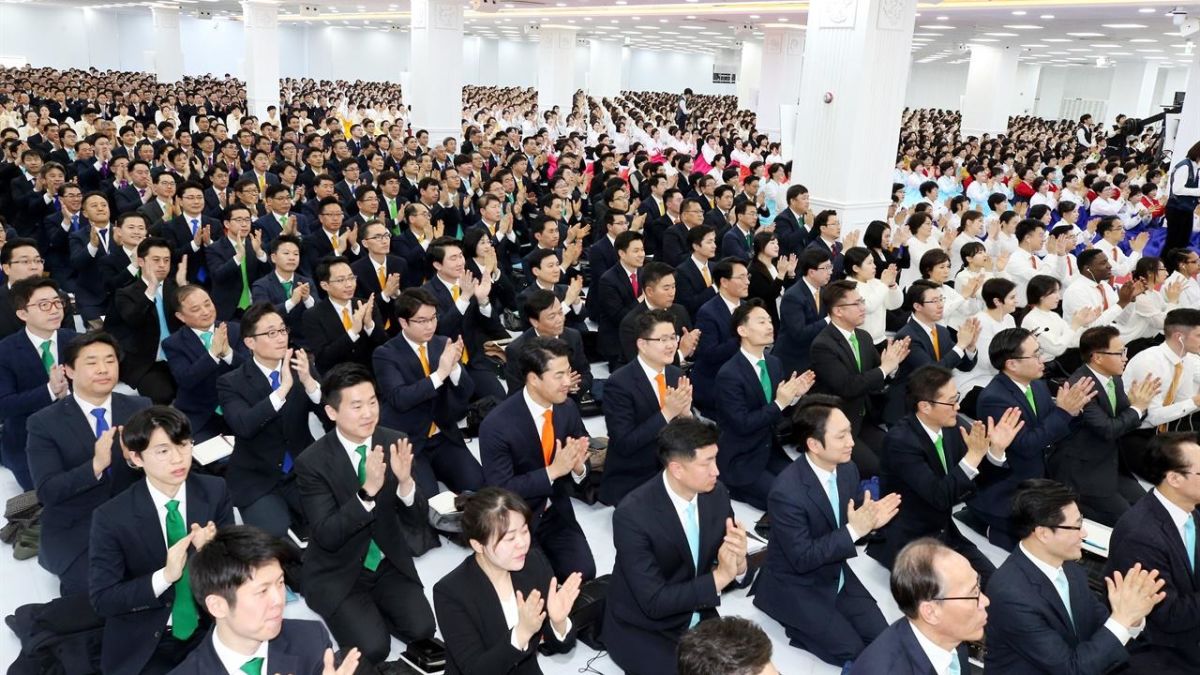
The Shincheonji has been the primary factor of the exponential explosion of the infected. At times, almost 70 % of the total number of the infected persons was composed of Shincheonji members. And, the cult sect did not fully cooperate with the government in identifying and locating the possible infected.
Another amazing thing about the Korean model is that despite such difficulties, Korea has achieved to stop the wave of the virus without panic or hoarding of toilet papers, foods and other goods of necessity. The super markets have been relatively well stocked throughout the trial time.
Why Successful?
The success of the Korean model may be attributable to the following factors: preparedness, apolitical approach, reliance on science and technology, use of masks, quality of leadership and citizens’ voluntary participation.
During the crisis of SARS of 2002-2003, Korea was not well prepared to fight the virus. Fortunately, as soon as the progressive government of Rho Moo-hyun came along in 2003, the government prepared a complete manual of fighting virus.
However, when the conservative government took over the power in 2008 by Lee Myong-bak and Park Geun-hye in 2013, the manual was thrown away, simply because it had been prepared by a progressive government.
Fortunately, as soon as the progressive government of Moon Jae-in took over the power in 2017, the manual was restored and much improved. This has made Korea well prepared for its fight against the COVID-19.
In general, one of the difficulties often encountered during the public health crisis is the collusion between business and politics. The collusion invites not only the misallocation of resources needed for the fight against the virus but also it delays the progression of the fight.
It is more than possible that this difficulty is being experienced by many countries, even developed countries.
The collusion hampers the anti-virus fight. For example, if the government decides to give the contract of mask production to an incompetent producer who is close to politicians in power, the supplied masks could be of poor quality or the supply of masks could be delayed.
The infected people need hospital care. If the government designates, for the care of the infected, one particular hospital because of bribes, the propagation of the virus could be accelerated.
In many cases, the government does not take anti-virus measures in time- and loses the golden time- because of the pressure coming from large corporations which are important source of political funding and bribes; these corporations are afraid of losing sales and profit which could result from the government’s anti-virus measures.
Thus, politically motivated government decisions, in time of virus crisis, may surely aggravate the crisis and delay the solution.
Right from the beginning of the virus crisis, Moon Jae-in’s government took apolitical approach to the crisis. This approach was an interesting contrast to the behaviour of the conservative party, LKP.
The solution of the MERS (2015) crisis was delayed because of the government-Chaebols collusion.
There were many victims of the MERS virus; they had to be hospitalized. Samsung Hospital was and is one of the major hospitals in Korea. Unfortunately, because of this hospital’s poor virus control, as many as 91 individuals were infected in the hospital.
But, the government did not announce this fact, because of the hospital’s possible demand not to report it. If the government announced this fact, Samsung Hospital would have lost a large number of usual patients and profit.
Because of this political and financial collusion of the conservative government with the Samsung Group, the MERS crisis lasted longer and its impact was devastating more than necessary.
The conservative party, currently the chief opposition party, exploits, once again, the virus crisis for its political purpose.
It has spread all sorts of fabricated facts and lies to discredit, in collaboration of the cult, Shincheonji, the government efforts to stop the invasion of the virus.
Fortunately, the government of Moon Jae-in was above politics; it was concerned only with saving the lives of the people.
- Reliance on Science and Technology
The apolitical approach to the fight against the virus allowed Korea to appeal to science and technology.
A reputed Korean expert in the area of virus-related diseases insisted on the importance of humility in front of science, because the virus listens only to science; there is no place for anti-virus measures which are for political gains or business profit.
Korea has been humble in front of the science and technology. The sustained scientific and technological research activities by universities, government-run laboratories and private technology firms have made a major contribution to the fight against the COVID-19.
In particular, Segene Inc.,Gencurix, GeneMatrix, SolGent Co. and iLamp have discovered the composition of the virus by identifying the genes. The products of these firms have made it possible to produce massively and rapidly efficient test kits. In particular, iLamp’s product “Novel COV19 Detection kit” is popular and it allowed a complete test in 20 minutes.
Moreover, further research has produced “the drive-through test system” and “the booth-based test device.” As a result, Korea could test, in safety, as many as 15,000 individuals a day; up to now, Korea has tested 330,000 individuals.
There is another role played by technology. Korea is one of the most advanced digitalized countries. The digitalization of commerce has allowed the rapid distribution of necessity goods and services through e-commerce. This is one of the factors of the relative absence of hoarding of goods and the prevention of the panic.
In the West including Canada and the U.S. the general public is discouraged – even forced – not to wear masks. The government insists that only the people working for the public health should wear them.
This policy of the government can be explained by two possible reasons. One is the belief that the masks cannot protect us from being infected. The other is the shortage of the supply of masks.
According to experts in Asia, the masks are good devices of protection not only from the air born virus but also the virus coming from human touch.
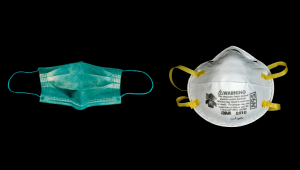
There are those who seem to believe that the Asians wear masks because of the “culture.” It is hard to believe that there can be a culture in which people love to suffer by wearing the mask. This is sheer nonsense to relate mask wearing to culture.
The plausible reason for asking Canadian not to wear masks should be the shortage of its supply. Here again, it is not convincing, for Canada’s industrial capacity can solve the problem.
Do not forget, the medical team wear masks, because the masks do protect them. If so, they protect the general public, too.
Incidentally, it may be added that the popular use of masks in Korea allowed the continuous operation of factories, restaurants, shopping centers and a host of other businesses.
The most important determinant factor of the success of the Korean model is, perhaps, the leadership of the government and strong public faith in Moon Jae-in. This leadership has been demonstrated in various collective activities.
First of all, the quality of human resources of the government is pretty high and they are well motivated. Most of the key positions in the government are filled with people who have two characteristics.
Most of them are the anti-corruption generation who fought against the corrupted conservative policies and at the same time, they are highly qualified professionally and motivated for their functions.
In other words, under Moon’s government, we rarely see those who are nominated for bribes or connections.
Second, the present government is free from political debt to the corrupted establishment. This has allowed the government to focus on the job of saving lives without being forced to protect vested interests.
Third, President Moon is not only respected but also loved by the great majority of the people. His entire career has been devoted to the fight for the poor and the weak. This has led the people to have confidence in the information provided by the government policy makers. Such confidence has made people to follow faithfully the government instructions.
Fourth, the confidence in the leadership has facilitated the communication between the government and the people.
In Korea, there is a system in which, if more than 200,000 persons request something to the government, the Blue House (Korean White House) must react.
For instance, more than 2,000,000 people have requested the abolition of the cult Shincheonji. This has allowed Seoul City to take harsh punitive measures against the cult sect. On the 25th of March, the cult did lose its legal status.
- Character of Ordinary Koreans
One of the most important reasons for the success of the Korean model is the character of the ordinary Koreans.
For centuries, they have been exploited and mistreated by the ruling class, called “Yang-ban.” This has created a situation where the ordinary people had to find the problem solutions themselves without relying on the ruling class.
They organized the “Dong-hak:東學” (Eastern Studies) and revolted against the corrupted officials during the latter half of the 19th century and succeeded in abolishing the feudal “Yang-ban” system; they rose against the Japanese colonial government in 1919; they fought against the corruption of the conservative governments’ police and military dictatorship.
Finally, 17,000,000 people carried out the Candle-Light Revolution of 2016-2017 and impeached Park Geun-hye.
This tradition has made the ordinary Koreans to unite and find solution themselves even without the help of the government; this tradition has led to the culture of “Jeong-情” which can be translated into caring each other and the collective will to solve the problems all together. There is no doubt that this culture has been one of the key factors of the Korean model’s success.
Philosophy of the Korean Model?
There is another interesting feature of the Korean model; it is its inclusiveness. Korea believes that the COVID-19 crisis is not a simple national crisis of Korea; Korea believes that it is a global crisis and, hence, Korea must participate actively in the global anti-corona-virus fight.
Recently, a delegation of WHO came to Korea in order to organize a global team of scientific research hoping to produce a global manual of anti-corona-virus fight. The Foreign Minister of Korea, Kang Kyung-hwa said this:
“We are taking this approach of openness and transparency not just domestically but to the international community that is highly interdependent with rest of the world.” (Interview with abs-cbn, March 3, 2020)
On March 26, President Moon Jae-in took the initiative of an online conference with the heads of G20 in order to share the experience of Korea’s anti-virus fight.
Learn Anything from the Current Crisis?
I may allow myself to say a few words on the current global corona-virus crisis.
First, for last half century, the world has been blindly devoted to GDP growth, as if it were the only reason for man to exist.
Under the banner of neo-liberalism, the humanity has been chasing after more and more advanced technology and bigger and bigger GDP.
But what we got? We got wider income disparity, increasing jobless, increasing depletion of natural resources, worsening natural environment. Only a few got richer.
What is upsetting is that with all that money, knowledge and technology, man has not been able to prepare for the corona-virus invasion.
There are thousands more viruses in the nature; some of which could be more deadly than corona-virus. Can’t we take some money from the billionaires and produce more masks, tests kits and medical gowns?
Second, the COVID-19 has shown us that it does not care about the race, income or geography. The COVID-19 is telling us that we need a global preparedness for other virus that will surely attack us.
So we need international cooperation. China has been generous in sharing its experiences and sending needed medical equipment to needy countries. Korea is doing the same.
Third, Washington’s attitude toward the current crisis is quite disappointing, to say the least.
Mike Pompeo, the State Secretary of the U.S. seems to like to use the word,”Wuhan Virus” and Donald Trump looks happy when he picks the expression “Chinese Virus.”
It is true that the first location of massive breakout of the virus was the city of Wuhan, but this does not mean that the city was the location of virus origination; we do not know who the ground zero infected person was. The virus could have come from outside China and planted in Wuhan.
Owing to excellent papers of the Center for Research on Globalization by Professor Michel Chossudovsky, Peter Koenig, Stepĥen Lendman and many others, we have meaningful information on the origination location of the corona-virus. These papers make it clear that the virus could have originated in the U.S. and transmitted to China.
Even if the virus originated in China, it has been the tradition of not mentioning the place of the origination in order to avoid harmful stigma and promote international cooperation.
The U.S. has the largest economy and the most powerful army in the world. Therefore, it is natural to expect some generosity and mature behaviour as the world leader. But I am asking if it is a real leader.
Fourth, the world, especially the developed countries, should repent for not having prepared for such a global crisis like the COVID-19 crisis; it is about the time to mobilize resources to create a world in which the public health security is as important as economic growth.
To conclude, I offer my sincere compliments to the Quebec Premier, François Legault, and his team for their devotion to the fight against the corona-virus.
If Korea’s experience means anything at all, it is the importance of the united participation of the people. The Quebec people can be united as they were united during the Quiet Revolution.
As the premier said, the Quebec people should become “a singly army unit” and march forward to kill the enemy, the COVID-19.
*
Note to readers: please click the share buttons above or below. Forward this article to your email lists. Crosspost on your blog site, internet forums. etc.
Professor Joseph H. Chung is professor of economics and co-director of the Observatoire de l’Asie de l’Est (OAE) of the Centre de Recherches sur l’Intégration et la Mondialisation (CEIM), Université du Québec à Montréal (UQAM) He is Research Associate of the Center for Globalization (CGR)
